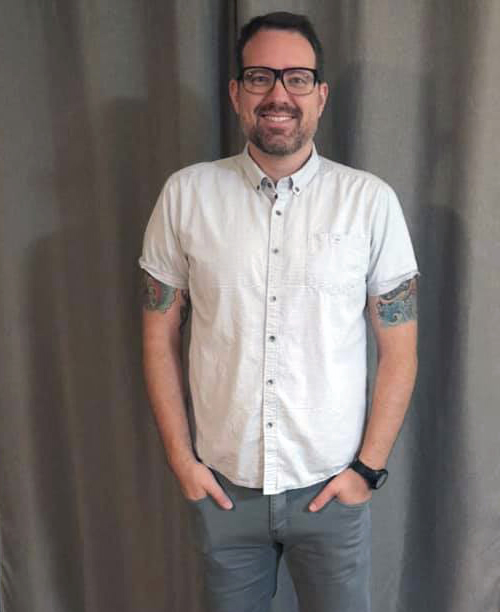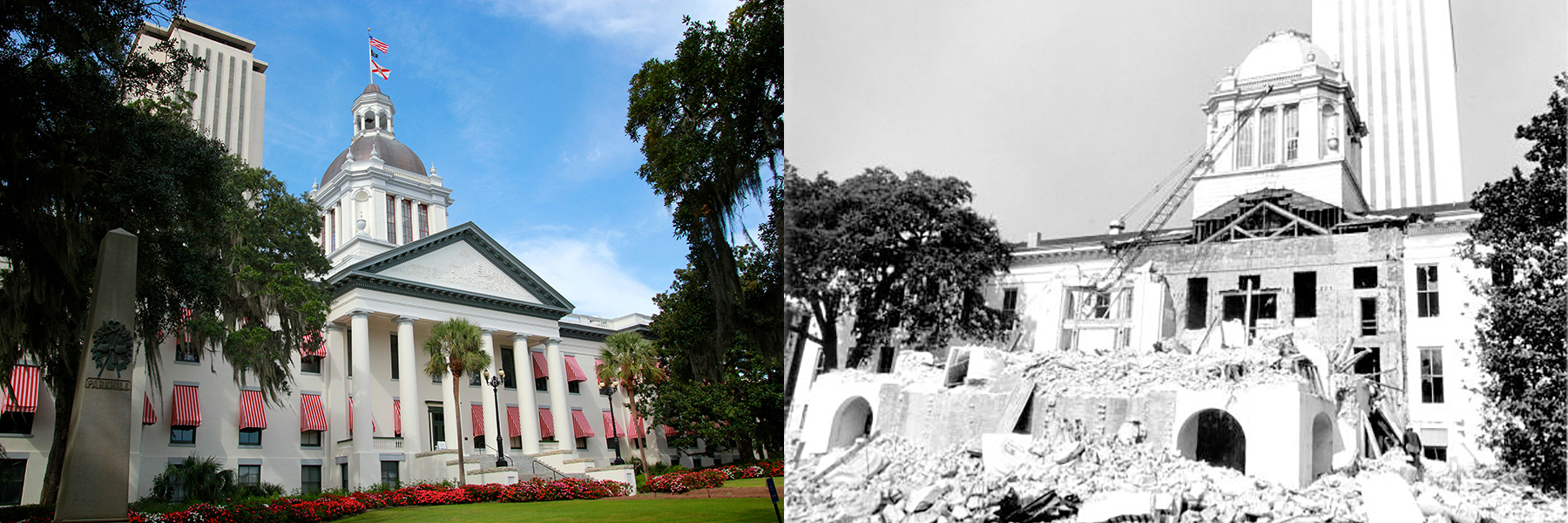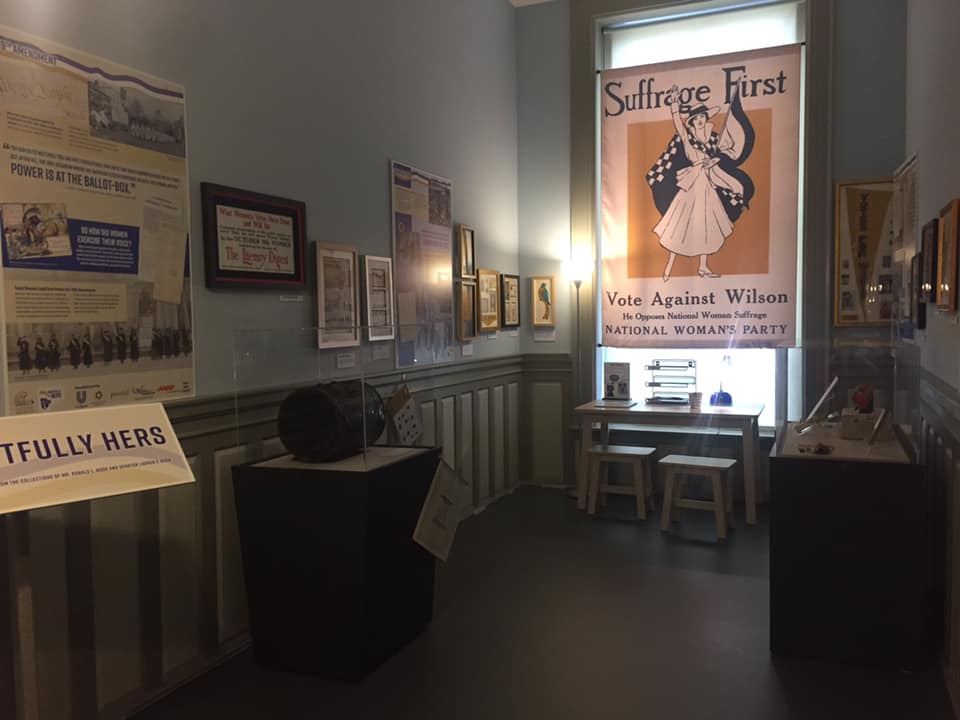FSU alumnus James McAllister assembles Florida's history

Even as a child, James McAllister was fascinated by museums. His parents would joke about how half the time he would end up leading the tour. Years later, the Florida State University history doctoral candidate has turned his lifelong affinity into a career.
McAllister, who earned his master’s in history at FSU in 2016, now handles the collections of the Florida Historic Capitol Museum, which document the state government’s past. He focuses primarily on maintaining, cataloguing and studying various objects and papers housed permanently or on loan.
A day’s work could include “stabilizing” objects or bringing in specialists to make repairs, accumulating the research available on particular items to help others design exhibits and give tours, and ensuring artifacts are stored correctly and protected from temperature, humidity and light.
“You have to take a long-term view of these objects,” McAllister said. “Even if you work somewhere for 40 years, you’re only a temporary custodian. The goal is to preserve them for hundreds of years.”
While working full-time, McAllister has completed all his doctoral requirements, save his dissertation. His research fields include American history through the Civil War and public history, both of which directly align with his museum work.
Katherine Mooney, associate professor of history at FSU, is McAllister’s dissertation adviser and the two have a shared interest in American history of that period and how it has shaped today’s world.
“We both work on how regular people were caught up in huge world events, like the Civil War, and figured out what those big changes meant for their lives,” Mooney said.
McAllister’s work examines how former slaves, particularly women, test what “freedom” means in real life by performing actions and activities they were unable to engage in during slavery and asserting that historical behaviors that had gone unchecked were actually criminal offenses against human dignity.
“Any project that helps us talk about our big American abstractions — like ‘rights’ and ‘freedom’ and ‘equality’ — in terms of what really happens in people’s lives, makes us better equipped as thinkers and as citizens,” Mooney said.
The combination of FSU research and museum experience has given McAllister a truly physical connection to the past.
“Working in collections means I have the opportunity to handle objects and papers created by people I’ve studied for so long. It’s been truly rewarding,” he said.

The Historic Capitol building itself is an important piece of Florida history. It housed all three branches of government — the governor’s office, both chambers of the House and Senate and the state Supreme Court — throughout portions of the 19th and 20th-centuries. Over the years, its basement has held vaults, archives and an armory, and soldiers reportedly bunked there during the Civil War.
When the new capitol was built in the 1970s, citizen action saved the Historic Capitol from the threat of demolition and led to the restoration of its 1902 appearance. It now serves as a museum that exhibits more than 250 artifacts in 21 rooms.
The theoretical and practical training he received in Florida State’s Program in Historical Administration and Public History, such as how to collect, preserve and interpret history, manage archives, and execute exhibits, was designed to prepare him for his museum role, McAllister said.

The "Rightfully Hers" exhibit at the Florida Historic Capitol Museum. Courtesy photo.
The Historic Capitol has exhibits and objects dating back to territorial days before Florida’s founding as a state in 1845, but it also has collections covering more recent and modern-day events. McAllister said one of his contemporary projects includes items from protests that take place on the steps and in the halls of the Capitol. The T-shirts and posters on view are part of citizen activism that can change Florida’s future.
Jennifer Koslow, an associate professor of history at FSU and director of the university’s public history program, said students have the unique opportunity to work with the Florida Department of State and its many professionals who are engaged in history-oriented careers. The work McAllister does helps people realize history is less about memorizing names, dates and events, and more about informing today’s decisions.
“It isn’t that we are doomed to repeat the past, it is that if we don’t know our past, we can’t understand our present,” Koslow said. “If we can’t understand our present, how can we make choices in the future?”
